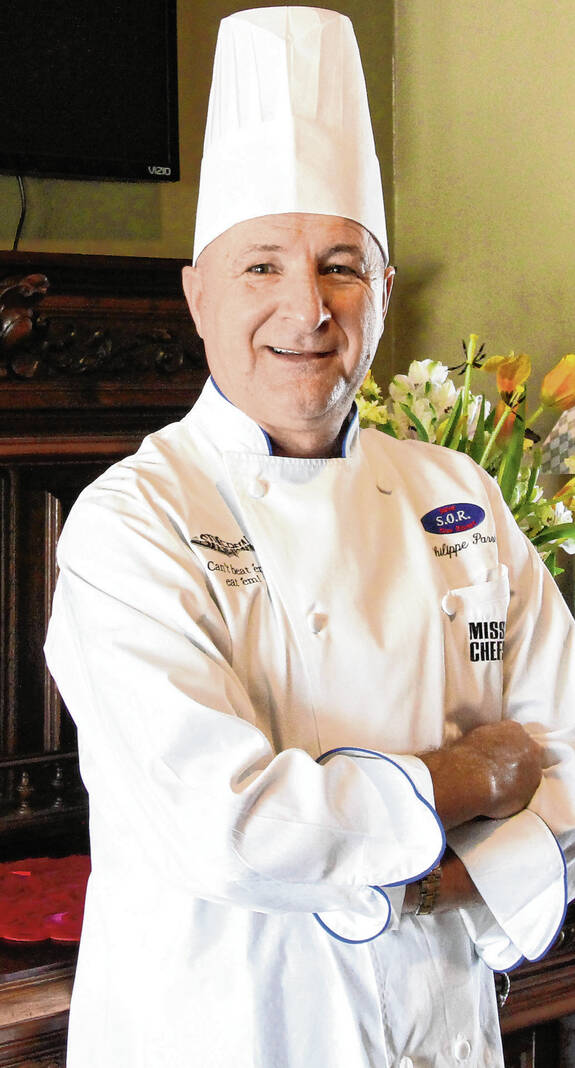The diversity and complexity of life on Earth is miraculous. Each species is designed to exist in specific ecosystems. Too often, these ecosystems become invaded by non-native species, or invasives. This throws off the entire balance of life in the ecosystem. Efforts must be made to stop the spread of invasives into non-native habitats and to preserve wildlife for future
generations.
Chef Philippe Parola believes he has the solution.
Nathan “Shags” McLeod and I recently interviewed Chef Parola for an episode of the Driftwood Outdoors podcast. During the interview, we learned about his mission to fight for the preservation of ecosystems against the imminent threat of invasive species. His solution to this problem is to eat invasive species. He wrote a book titled, “Can’t Beat ‘Em, Eat ’Em!”
“Together, we can make a difference by cooking and eating invasive species one bite at a time,” Parola said.
Here is an excerpt from our interview. To hear the entire conversation, check out Episode 216 of Driftwood Outdoors anywhere podcasts are streamed:
Shags: Chef, why do you want people to consider eating invasive species?
Chef Parola: We can diminish invasive species populations and minimize their threat to the ecosystem. On this quest, we boost local economies and create new jobs by promoting the commercial harvest of invasive species. My book features 40 invasive species in the United States. With each species, we have provided photos for you to identify the species and include scientific information about them, but I have also crafted a gourmet-minded recipe for each one. I encourage you to use these recipes and cooking instructions, which you can easily adapt to your regional flair and preferred taste.
Brandon: Chef, you are in Baton Rouge. We are in Columbia, Missouri. Although we are hundreds of miles apart, we are connected by water. The water flowing right by here in the Missouri River will eventually be in your backyard. How do we share these invasive problems?
Parola: I found an incredible map about the Mississippi Basin, and I pulled it out because a lot of folks don’t realize how big the Mississippi Basin is within the United States. It covers over two-thirds of the country. That is incredible. And every inch of those rivers are pretty much affected with some type of invasive species, but mainly the Asian carp. We have them all the way down to the Bayou. They are a big huge problem, for sure. There are many recipes for Asian carp. And if you cook any type of fish and you like it your way, it will work with Asian carp. It’s actually a very good meat and the proteins are very healthy and very nutritious as well. So we are definitely connected by carp.
Shags: How did you get into the invasive species cuisine? Because I mean, looking at your résumé, you have done amazing work. You don’t have to be bothering with animals like nutria or anything like that. What made you want to get into that?
Parola: I’m 65 years old. I hate to say that, but I feel very young. So anyhow, I grew up in the 1960s after World War II. Grocery stores were not very numerous. We didn’t have many of them, so we had to learn how to eat from Mother Nature. I used to go fishing, trapping, hunting, harvesting, mushroom and chestnut foraging, and would take whatever Mother Nature had to offer. That was mainly for us putting dinner on the table. So I grew up understanding the value of not wasting food.
Brandon: Chef, I must admit, I’m pretty set on what I like to eat. That said, I’m open to trying new dishes if I can collect the ingredients from nature. Your book is a great start, but how else can we learn about preparing invasives?
Parola: Now if you’re really interested, go to my YouTube channel “Chef’s Liberal” and then you will see me barbecuing nutria and me making tacos out of it. So you need to look at that YouTube channel, because there are many short videos on how to handle those dishes.
Shags: I’m completely sold on everything you’re saying, man. You are passionate about this and I’m on board. We are a wasteful generation. It’s pretty frustrating, living here and seeing all this waste. I can hear the frustration in your voice, too, of like, hey, I have the solution, but nobody wants to listen or do what it takes.
Parola: I’m ahead of my time. I agree with that, but you must have vision. You must be innovative. When you look at what’s happening with invasive species, the fact that they are everywhere and they are destroying agriculture and water quality, you must do something. If you’re a hunter, you know the wild boar. They are good eating. Open a processing plant and make food out of it to feed the hungry. People understand perfectly what needs to be done.
See you down the trail …
Brandon Butler writes a weekly outdoors column for the Daily Journal. For more Driftwood Outdoors, check out the podcast on www.driftwoodoutdoors.com or anywhere podcasts are streamed. Send comments to [email protected].





